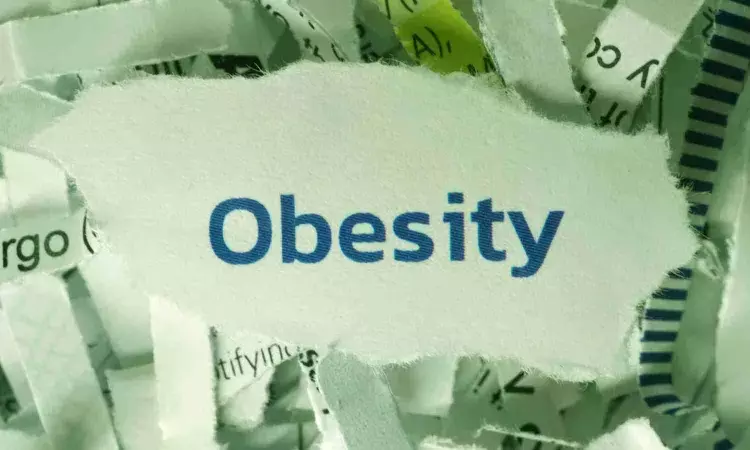- Home
- Medical news & Guidelines
- Anesthesiology
- Cardiology and CTVS
- Critical Care
- Dentistry
- Dermatology
- Diabetes and Endocrinology
- ENT
- Gastroenterology
- Medicine
- Nephrology
- Neurology
- Obstretics-Gynaecology
- Oncology
- Ophthalmology
- Orthopaedics
- Pediatrics-Neonatology
- Psychiatry
- Pulmonology
- Radiology
- Surgery
- Urology
- Laboratory Medicine
- Diet
- Nursing
- Paramedical
- Physiotherapy
- Health news
- Fact Check
- Bone Health Fact Check
- Brain Health Fact Check
- Cancer Related Fact Check
- Child Care Fact Check
- Dental and oral health fact check
- Diabetes and metabolic health fact check
- Diet and Nutrition Fact Check
- Eye and ENT Care Fact Check
- Fitness fact check
- Gut health fact check
- Heart health fact check
- Kidney health fact check
- Medical education fact check
- Men's health fact check
- Respiratory fact check
- Skin and hair care fact check
- Vaccine and Immunization fact check
- Women's health fact check
- AYUSH
- State News
- Andaman and Nicobar Islands
- Andhra Pradesh
- Arunachal Pradesh
- Assam
- Bihar
- Chandigarh
- Chattisgarh
- Dadra and Nagar Haveli
- Daman and Diu
- Delhi
- Goa
- Gujarat
- Haryana
- Himachal Pradesh
- Jammu & Kashmir
- Jharkhand
- Karnataka
- Kerala
- Ladakh
- Lakshadweep
- Madhya Pradesh
- Maharashtra
- Manipur
- Meghalaya
- Mizoram
- Nagaland
- Odisha
- Puducherry
- Punjab
- Rajasthan
- Sikkim
- Tamil Nadu
- Telangana
- Tripura
- Uttar Pradesh
- Uttrakhand
- West Bengal
- Medical Education
- Industry
Innovative nanoparticle therapy targets fat absorption to combat obesity: Study

Researchers have unveiled a novel approach to tackle obesity by targeting fat absorption in the small intestine. The cutting-edge nanoparticle system, engineered to deliver therapeutic molecules directly to the digestive tract, has shown significant potential to prevent diet-induced obesity.
Presented today at UEG Week 2024, the study focuses on an enzyme called Sterol O-acyltransferase 2 (SOAT2), which plays a critical role in fat absorpsion in the small intestine. By inhibiting this enzyme in the small intestine, the study offers a promising therapeutic approach to reduce fat absorption and potentially prevent obesity.
Despite extensive research into fat metabolism, effective inhibitors of intestinal fatty acid uptake have until now remained elusive. “For years, researchers have studied fat metabolism, but finding an effective way to block fat absorption has been difficult,” explained lead researcher Dr Wentao Shao. “While most strategies focus on reducing dietary fat intake, our approach targets the body’s fat absorption process directly."
The research team developed an innovative delivery system using nanoparticles – a tiny capsule made from a polymer core, coated in a protective shell. The system was designed to efficiently carry small interfering RNAs (siRNAs) to the small intestine, where they can reduce SOAT2 expression, inhibiting fat absorption. In mouse models, the animals treated with the nanoparticle therapy absorbed less fat and avoided obesity, even on a high-fat diet.
“This oral treatment offers several advantages”, said Dr Shao. “It’s non-invasive, has low toxicity, and it has high potential for better patient compliance compared to current obesity treatments, which are often invasive or difficult to maintain. This makes it a promising alternative.”
The study also uncovered the underlying mechanism by which SOAT2 regulates fat absorption. Inhibition of SOAT2 in the small intestine triggers degradation of CD36, a protein reponsible for transporting fat. This process involves both cellular stress and the recruitment of E3 ligase RNF5, an enzyme that enhances CD36 degradation.
Previous studies have shown that blocking hepatic SOAT2 leads to fat accumulation in the liver, whereas this intestine-specific approach circumvents that risk, offering a safer and more focused treatment for obesity.
Professor Zhaoyan Jiang, study supervisor, explained, “One of the most exciting aspects of this therapy is its ability to target fat absorption in the intestines without affecting the liver. This is important because previous studies showed that blocking SOAT2 in the liver can lead to fat buildup there – a risk our treatment avoids by focusing only on intestinal SOAT2.”
Looking ahead, the research team plans to test the nanoparticle system in larger animal models to confirm its effectiveness and safety for potential use in humans.
“We believe that this nanoparticle system represents a breakthrough in obesity management, offering a new solution that tackles both fat metabolism and diet-related weight gain, potentially ushering in a new era of more effective treatments”, Professor Jiang concluded.
Reference:
Innovative nanoparticle therapy targets fat absorption to combat obesity, Beyond, Meeting: UEG Week 2024.
Dr Kamal Kant Kohli-MBBS, DTCD- a chest specialist with more than 30 years of practice and a flair for writing clinical articles, Dr Kamal Kant Kohli joined Medical Dialogues as a Chief Editor of Medical News. Besides writing articles, as an editor, he proofreads and verifies all the medical content published on Medical Dialogues including those coming from journals, studies,medical conferences,guidelines etc. Email: drkohli@medicaldialogues.in. Contact no. 011-43720751


